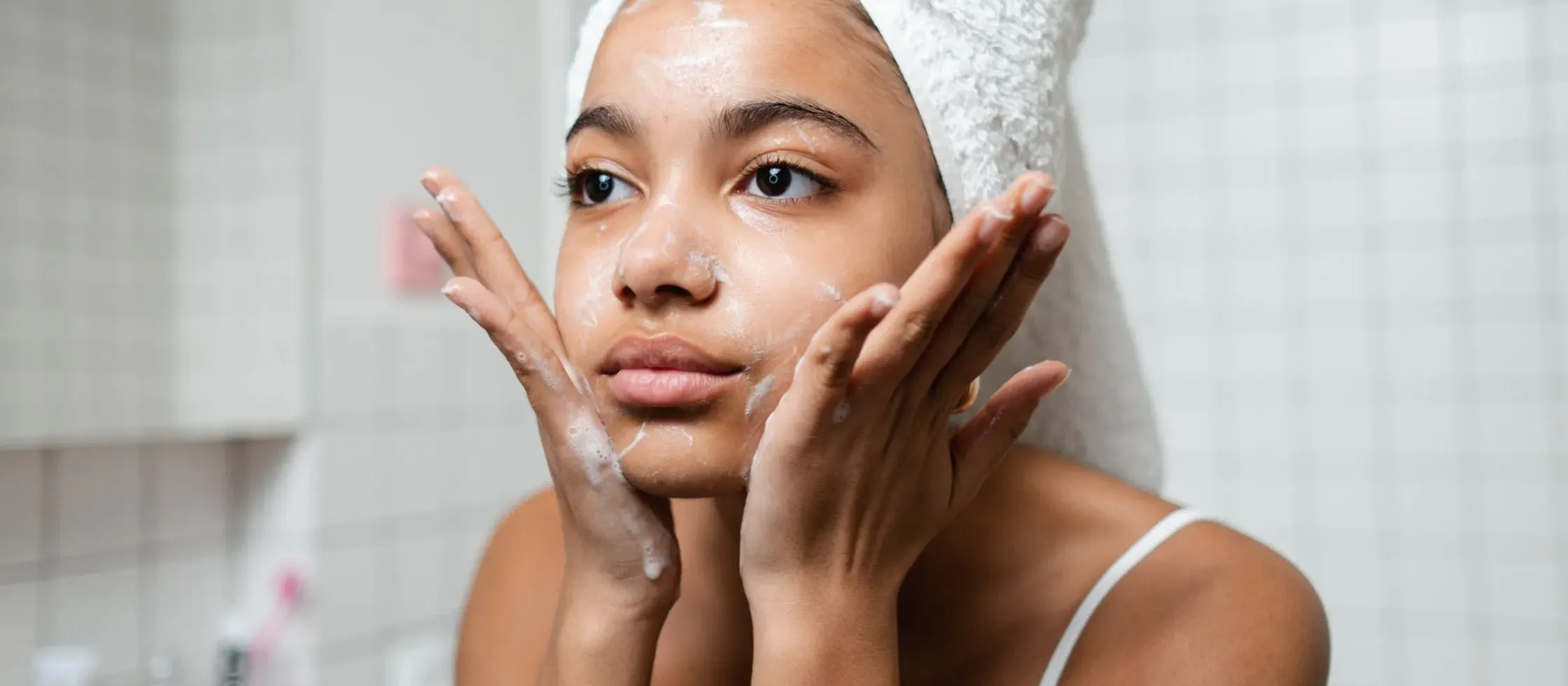Effective Face Washing Tips for Clearer Skin


Washing your face is a fundamental step in any skincare routine, especially for those struggling with acne. Understanding the right techniques and products can make a significant difference in achieving clear, healthy skin. Here’s how you can effectively wash your face to help combat acne and promote overall skin wellness.
Before touching your face, ensure your hands are clean. Wash them with soap and water to remove any dirt or bacteria that could transfer to your skin.
If you wear makeup, it’s essential to remove it before washing your face. Use a gentle makeup remover or micellar water to ensure that your skin is free of any makeup residue. This step is crucial, as leftover makeup can clog pores and lead to breakouts.
Choose a cleanser that suits your skin type. For acne-prone skin, opt for a gentle, foaming cleanser that contains salicylic acid or benzoyl peroxide. Avoid harsh bar soaps, as they can strip your skin of its natural oils, leading to irritation and more breakouts.
Use lukewarm water to wet your face. Hot water can dry out your skin, while cold water may not effectively remove dirt and oil. Lukewarm water is gentle and helps to open up your pores, making it easier to cleanse your skin.
When applying your cleanser, use your fingertips to massage it into your skin gently. Avoid scrubbing too hard, as this can irritate your skin and worsen acne. Focus on areas that tend to be oilier, such as your forehead, nose, and chin.
After cleansing, rinse your face thoroughly with lukewarm water to ensure all product is removed. Leaving cleanser on your skin can lead to irritation and breakouts.
Use a soft, clean towel to pat your face dry. Avoid rubbing your skin, as this can cause irritation. Make sure your towel is clean to prevent transferring bacteria back onto your skin.
After cleansing, consider using a toner to help remove any leftover impurities and balance your skin’s pH. Look for alcohol-free toners that contain soothing ingredients like witch hazel or rose water.
Even if you have oily skin, moisturizing is crucial. Choose a lightweight, non-comedogenic moisturizer that won’t clog your pores. This step helps to keep your skin hydrated and can prevent your skin from producing excess oil.
Washing your face too often can strip your skin of its natural oils, leading to irritation and more breakouts. Aim to wash your face twice a day—once in the morning and once at night.
Consistency is key in any skincare routine. Stick to your cleansing routine, and give your skin time to adjust to any new products. It may take a few weeks to see noticeable improvements.
Your environment can also impact your skin. Pollution, humidity, and even the products you use in your home can affect your skin's health. Make sure to keep your living space clean and consider using an air purifier if you live in a polluted area.
For those struggling with dark spots or uneven skin tone, consider incorporating specialized treatments like serums that contain ingredients such as niacinamide or vitamin C. These can help brighten your skin and reduce the appearance of dark spots.
Drinking plenty of water is essential for maintaining healthy skin. Hydration helps your skin stay plump and can aid in the healing process of acne. Aim for at least eight glasses of water a day.
Sun protection is crucial for all skin types, especially if you’re using acne treatments that can make your skin more sensitive to the sun. Use a broad-spectrum sunscreen with at least SPF 30 daily, even on cloudy days. Look for lightweight, non-greasy formulas that won’t clog your pores.
If you’ve tried various methods and still struggle with acne, consider consulting a dermatologist. They can provide personalized advice and may recommend prescription treatments tailored to your skin’s needs.
The best times to wash your face are in the morning and before bed. Washing in the morning helps remove any oils that accumulated overnight, while washing at night removes dirt, makeup, and pollutants from the day.
While rinsing your face with water can help remove some dirt, it’s not enough for a thorough cleanse, especially if you wear makeup or have oily skin. Using a cleanser is essential for effectively removing impurities.
If your skin feels clean and not overly dry or tight after washing, your cleanser is likely working well for you. If you notice irritation or excessive dryness, consider switching to a gentler formula.
Remember, everyone’s skin is different, and what works for one person may not work for another. Embrace your unique journey towards self-discovery and well-being. With the right techniques and a commitment to your skincare routine, you can achieve clearer, healthier skin.
For those looking to enhance their skincare routine, consider integrating advanced skincare solutions that focus on restoring pigment balance and treating discoloration. Products designed with advanced formulations can help you achieve even-toned skin effectively.
As you navigate your skincare journey, remember that true beauty comes from embracing your authentic self and fostering a sense of community. Celebrate your individuality and the progress you make along the way.